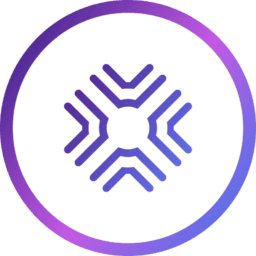Over the years, Salesforce has used its annual Dreamforce event to unveil its new technologies and tools. Each one is designed to change how Salesforce organizations do business in some shape or form.
While product announcements like Einstein GPT, Data Cloud, and Chatter have lived up to this promise, there have also been examples-IoT Cloud or NFT Cloud-that didn’t quite live up to the same revolutionary impact. As the leader in CRM solutions, the position of Salesforce depends on continued innovation and technological advancement to maintain its dominance and relevance.
Salesforce Agentforce is highly likely to be a game-changer in CRM environments. The concept of AI Agents has been discussed in the AI field for some time, but the technology has not been mature enough to bring these ideas to life until now.
Agentforce is designed to automate the most broad range of CRM tasks that could not be automated with traditional approaches. With the power of AI, it promises to handle customer inquiries, qualify leads, engage with end users, and even support employees with more complex tasks.
Changes Salesforce Agentforce could bring into organizations promise to be profound. However, for businesses to harness it fully, one must have crystal clarity on what the AI Agents are and how best one could employ them. That’s where we come in.
What is Salesforce Agentforce?
Understanding Agentforce as Salesforce’s AI Solution
Agentforce is a selection of autonomous AI Agents that can be used to enhance business operations in multiple areas – marketing, commerce, sales, service, and more. The primary goal of an Agent is to perform certain tasks autonomously – qualifying sales leads, resolving customer cases, optimizing marketing campaigns, and many other tasks that are too complex to be completely automated.
How Agentforce Works Within the Salesforce Ecosystem
Agentforce has a high level of integration with the Salesforce platform, offering a number of basic templates to work off of, as well as the ability to customize Agents’ capabilities using a low-code environment. Agents are capable of triggering workflows, updating records, and using customer data in different ways, providing a lot of potential for Salesforce customers in terms of efficiency and performance.
Integrating Agentforce helps companies offer more personalized customer experiences and offload a number of processes to Agents that cannot be automated with traditional means for some reason. It is a relatively recent feature of Salesforce, although it was teased for the majority of this year, and it is even accessible through Salesforce Foundations (available to everyone with Enterprise Editions and higher).
Key Features of Salesforce Agentforce
In addition to the general advantages we’ve previously discussed, Salesforce Agentforce offers several powerful capabilities:
- Connection with all kinds of data sources to provide Agents with information for real-time data processing.
- Einstein Trust Layer was designed to make sure that Agents do not operate outside of established limitations, preventing unauthorized data access and respecting all of the security policies.
- Atlas Reasoning Engine powers Agentforce’s analytical capabilities, along with decision-making and task-completion processes, with accurate and reliable results as a definitive outcome.
- Agent Builder serves as the aforementioned low-code tool to customize existing Agents or build new ones with specific business processes in mind. The tool itself uses a number of existing capabilities from the Salesforce Platform – prompt templates, workflows, Apex code, etc.
What are the Different Types of AI Agents in Agentforce?
Overview of Autonomous AI Agents
An AI Agent in the context of Agentforce is an autonomous proactive application with the ability to offer a certain degree of specialized support to either customers or employees of a Salesforce organization. AI Agents are provided with all the specific business knowledge they would need to execute the tasks they are provided.
There are two primary types of Agents used in Agentforce:
- Assistive, which provides help with complex or time-consuming tasks:
- Assistance in CRM – answer questions in a conversational manner during work and take actions on a user’s behalf in Customer 360.
- Sales Coach – facilitates better onboarding and training for salespeople.
- Autonomous, that can operate without human intervention:
- Service Agent – autonomous service support with an increased number of case deflections.
- Sales Development Representative – developing sales autonomously, increasing the pipeline quality.
Salesforce provides a number of pre-built Agents in Agentforce that can act as templates for further customization when necessary:
- Operations Agent
- Finance Agent
- Retail Agent
- Healthcare Agent
- IT Agent
- Banking Agent, etc.
Building custom Agents from the ground up is also possible using the aforementioned Agent Builder; it operates by assigning topics to Agents and giving actions to these topics, operating as a relatively simple low-code environment.
Generative AI and its Role in Salesforce Agentforce
Generative AI is a type of artificial intelligence that creates new solutions or ideas based on data and patterns it was trained on beforehand. Such intelligence relies on machine learning models to produce outputs in a human-like fashion, offering assistance with problem-solving in the form of text, code, images, etc.
Generative AI can understand context, patterns, and relationships between topics and can learn over time the more it is used (and the more feedback it can gather). It also plays a crucial role in Salesforce Agentforce, making all of its autonomous decision-making capabilities a reality.
The usage of generative AI in Agentforce improves user efficiency, enhances customer service personalization, and can serve as the source of data-driven insights that can be acted upon in future strategic decisions. Such AI is implemented in both Atlas Reasoning Engine, which provides advanced problem-solving capabilities, and Einstein GPT Integration, which powers other AI-centric aspects of Salesforce.
How Can Salesforce Agentforce Boost Salesforce Adoption?
Improving Workflow Efficiency with AI Agents
The ability to handle repetitive tasks with Salesforce’s AI Agents leaves more time for employees to work on more meaningful tasks and strategic initiatives. The resolution of common queries in customer service increases general efficiency and reduces response times, while the ability to provide quality leads with little to no human intervention greatly streamlines the overall sales process.
Enhancing Customer Experience through Automation
AI Agents can go a step beyond existing automation techniques in customer interaction, offering consistent and fast responses without losing a certain degree of personalization. Agents can understand the context of customer preferences or behavior, providing personalized marketing events to specific users, which makes customer communication more relevant and engaging.
Integrating Agentforce with Existing Salesforce Tools
Agentforce seamlessly integrates with other Salesforce capabilities, enhancing its functionality and value. The Agent Builder provides low-code Agent customization tools while leveraging prompt templates, existing workflows, and Apex code capabilities. Additionally, the Atlas Reasoning Engine offers autonomous data analysis capabilities for Agents for future reference.
In essence, Agentforce can not only provide a lot of improvements to its users but can also easily be integrated with other capabilities of Salesforce, creating more value for end users and driving greater adoption.
Discover GRAX Platform
Backup, archive, recover and reuse your Salesforce data.
What Are the Pricing Models for Salesforce Agentforce?
Salesforce Agentforce pricing is flexible and convenient, capable of accommodating all kinds of businesses, both big and small.
Understanding Agentforce Pricing Structure
Agentforce’s pricing relies on a consumption-based model that charges per every single conversation with an AI Agent. The base rate is $2 per conversation, making it an acceptable option for any business type and opening up opportunities for businesses to scale their Agent usage when necessary. More information about Salesforce Agentforce pricing can be found here.
Comparing Pricing Options for Different Business Sizes
Even though Agentforce has a single pricing tier, it is still a viable option for both large and small businesses:
- Large businesses are qualified for volume discounts to make large-scale deployments less expensive and reduce per-conversation costs.
- Small businesses only have to pay for conversations they can afford, making Agentforce a relatively economical option.
Evaluating ROI for Your Investment in Agentforce
Three of the most common examples of how Salesforce Agentforce can provide a significant return on investment are:
- Higher customer satisfaction, made possible by quick and accurate customer responses from AI Agents.
- Lower operational cost, decreasing the need for additional staffing to a certain degree by handling certain tasks autonomously.
- Better efficiency via routine task automation, opening up more free time for employees to work on important processes.
Salesforce provides a dedicated webpage featuring an interactive calculator that estimates potential cost savings with Agentforce’s AI Agents, offering a year-over-year breakdown of results. This tool evaluates four key parameters:
- Conversations handled by a single customer service representative in a day
- Number of customer service representatives
- Average annual cost per employee
- How many support conversations are planned to shift to Agentforce in 3 years
The page itself can be found here, working as a convincing resource for why businesses should try to rely on AI Agents more.
What Is the Future of AI and Agentforce?
Artificial Intelligence as a technology keeps evolving at an unprecedented pace to this day, and a lot of its evolutions have substantial implications for Salesforce Agentforce and similar AI-oriented platforms. Being able to adapt to emerging developments and implement new technologies should allow businesses to get the most out of such a fast-moving environment.
Trends in AI Development and Their Impact on Agentforce
AI Agents such as the ones presented in Agentforce are one of the most recent developments in the field of Artificial Intelligence, offering the ability to perform relatively complex tasks without the necessity of human intervention. As we have mentioned before, lead qualification and customer service inquiry processing are just a few examples of such capabilities.
Customizable AI Agents that can easily integrate with existing Salesforce workflows represent a new leaf in Salesforce history, opening up more opportunities for meaningful tasks and operations for human employees by automating a portion of the operations that could not be automated by legacy means.
Predictions for the Future of Salesforce AI Offerings
Salesforce is expected to continue expanding AI Agents’ capabilities in the future, automating more and more time-consuming processes for end users. Additionally, newer and more efficient data analysis methods are expected to appear based on AI developments, along with improvements in terms of personalization that an AI Agent can offer in its capabilities.
How Businesses Can Prepare for the Next Generation of AI
The appearance of new and improved AI technologies is inevitable at this point. Most Salesforce organizations can do nothing but prepare for their inevitable introduction by following these recommendations:
- Invest in training your employees to work alongside AI-oriented features and tools.
- Implement scalable AI-based tools and services when possible.
- Analyze and look for areas where AI might be an efficient solution to an existing issue.
- Keep track of major AI developments in your field of work to remain competitive.
Only companies that can proactively embrace AI-related advancements can position themselves to fully harness the potential of technologies like Salesforce Agentforce.






